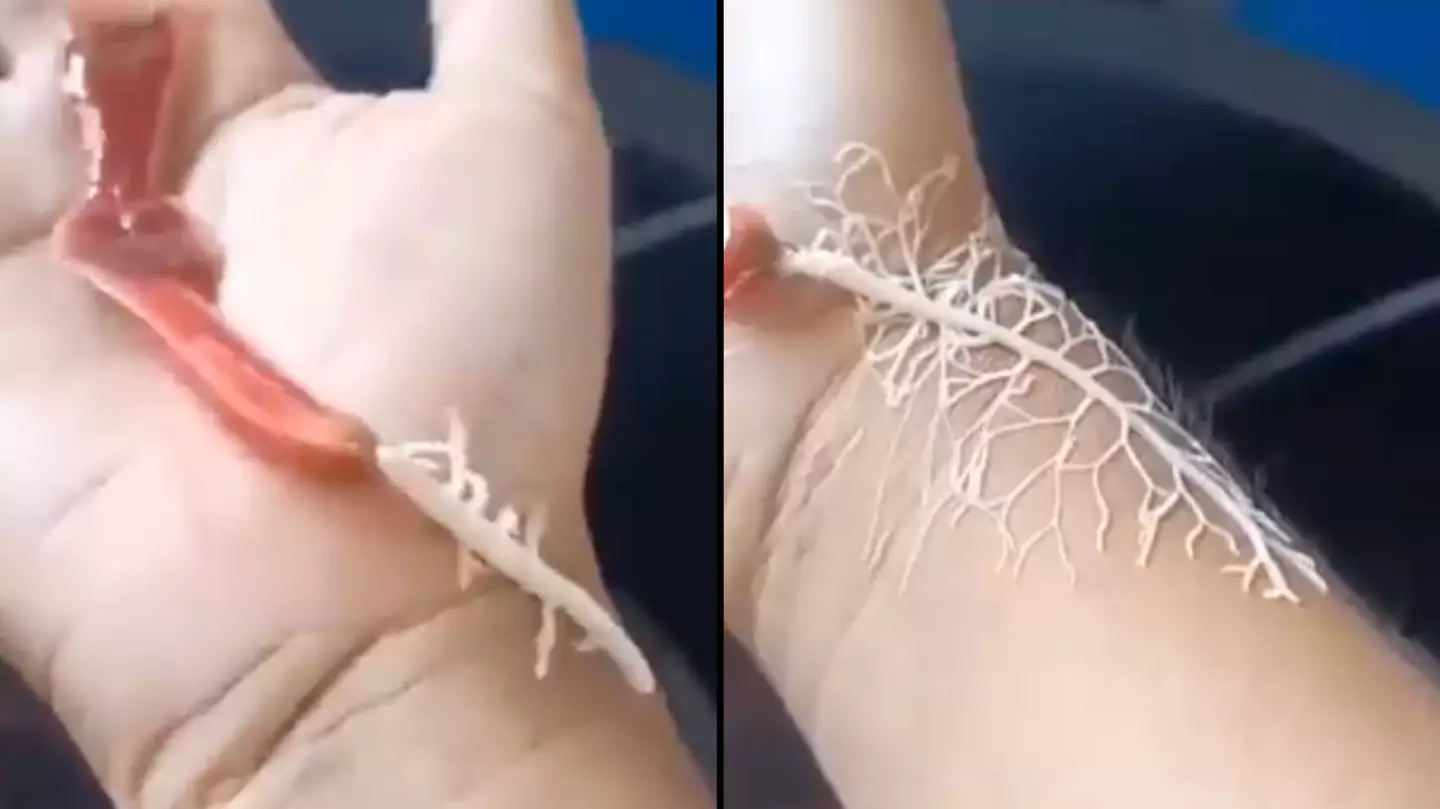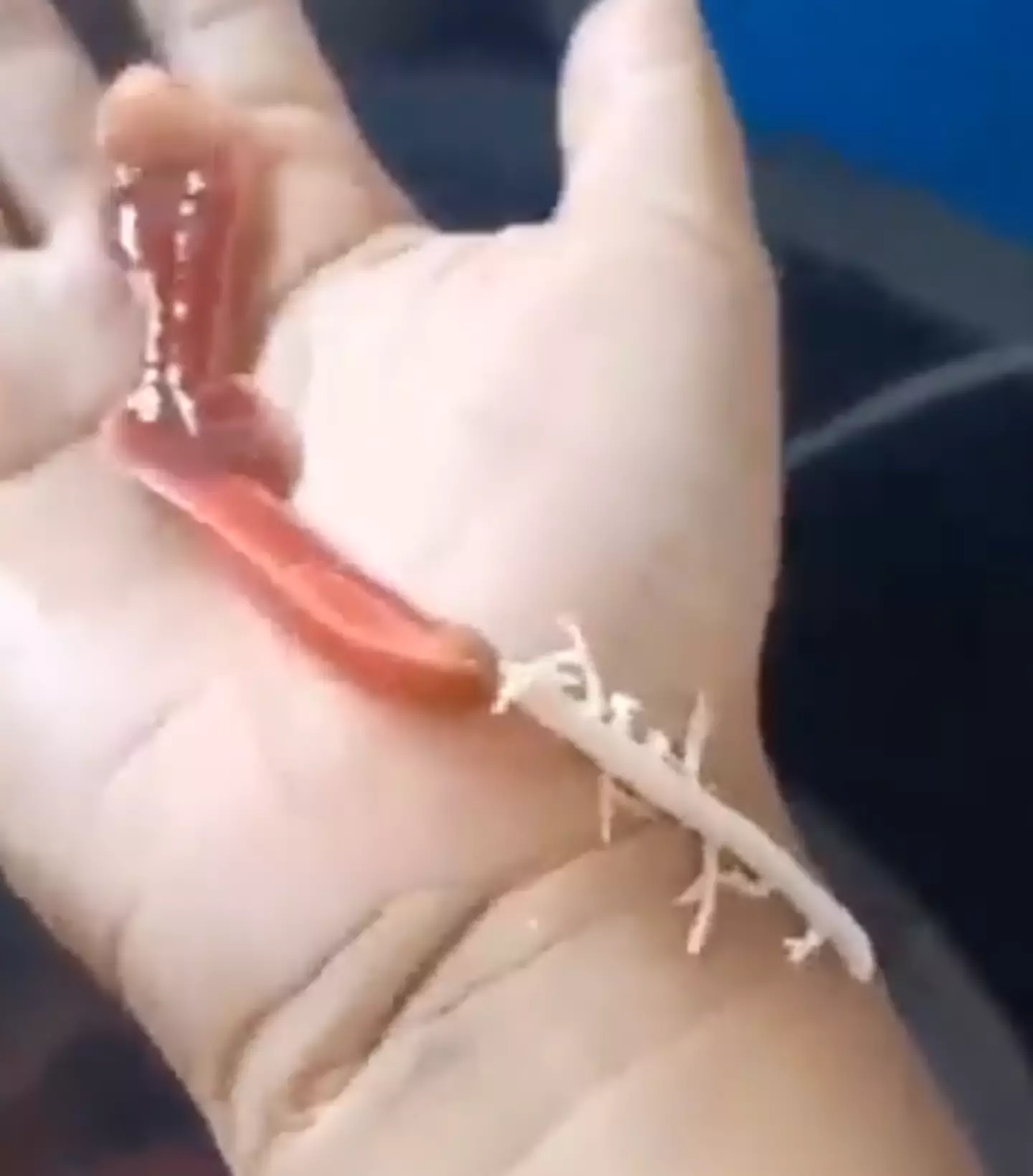
As we all know, nature can be damn scary - but some creatures are just beyond the pale.
One such creature has recently gone viral for its unbelievable creepiness.
Check it out here (if you're feeling brave):
As you can see in the video, someone with seemingly none of the normal human instincts is just casually letting a frankly gross, slimy, bulging worm undulate across their hand.
Honestly, any normal person would be screaming in an extremely high-pitch and flapping that hand about in a frantic panic.
Advert
But then, just when it looks like things couldn't get much worse - they get much worse.
Like something out of a horror movie, the red worm fires a great big tree-like web across the person's forearm - and miraculously, the mentally questionable worm carrier doesn't even flinch.
The horrifying video was recently shared on Twitter by the Interesting Channel, where it has racked up more than 4.3 million views and disgusted countless innocent scrollers.
Commenting on the video, one person said: "Nuke it from orbit."
Another wrote: "That truly looks like something out of Star Trek!"
Advert
A third added: "Ok - That's enough Twitter for today."

Honestly, I know God let two of all the lions, the elephants, and the zebras on the arc, but when and why did he let two alien-like tree web-spurting creep worms on?
Well, it turns out the worm in question is a nemertea, or a ribbon worm, to the worm layman.
There are more than a thousand species of ribbon worms in the world, and to be honest, the more you learn about them, the creepier they get.
Advert
The gooey white web is called a 'proboscis', which it uses to capture prey like molluscs and snails, before dragging them into its mouth.
It can also be used in a bid to fend off predators, like in the upsetting video in this article.
Speaking to Mental Floss in 2015, biologist and nemertea specialist Sebastian Kvist said: "What we're seeing is a very stressed worm that's doing everything it can to try to get away from the situation that it's in."
Its hydrostatic skeleton means it can fall apart without the ocean's water pressure; however, this falling apart doesn't seem to kill it.
"We're not sure if it's able to regenerate or not, but it doesn't seem to be fatal to the worm to break like that—which is really interesting," Kvist said.
Advert
This also means they leave virtually no fossil record, meaning we don't know much about them.
"That becomes a very problematic thing for trying to establish how recent or how ancient these guys are," Kvist explained.